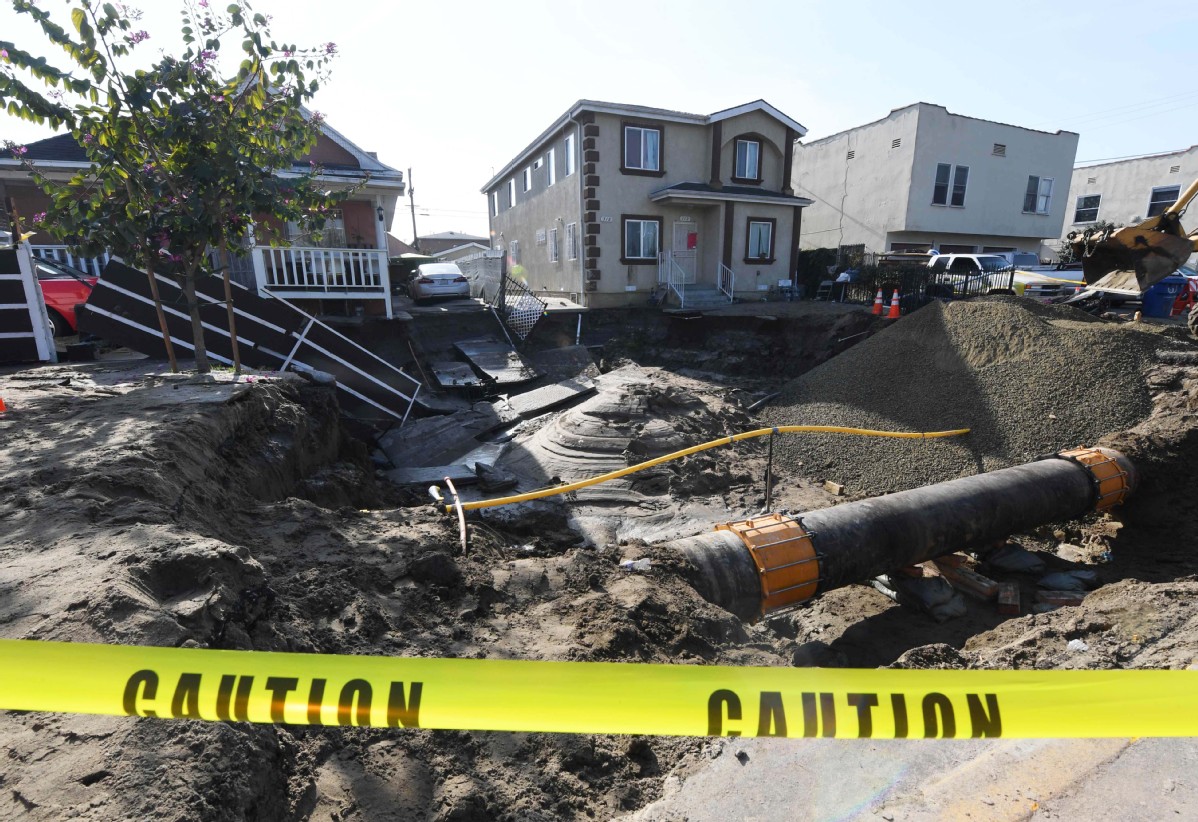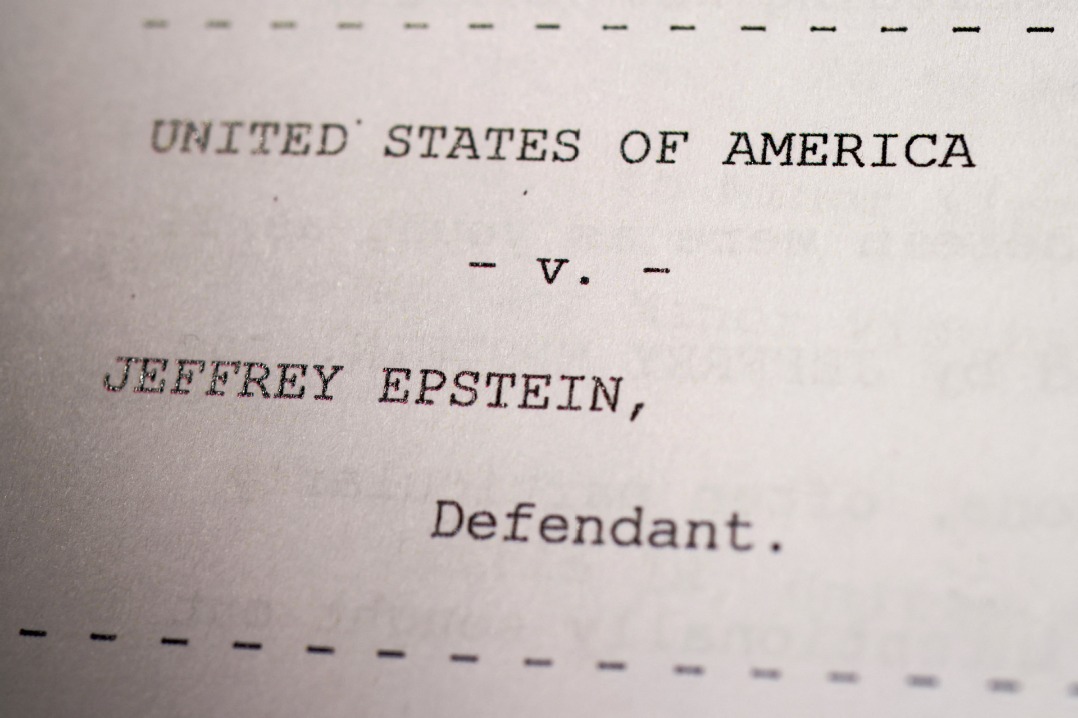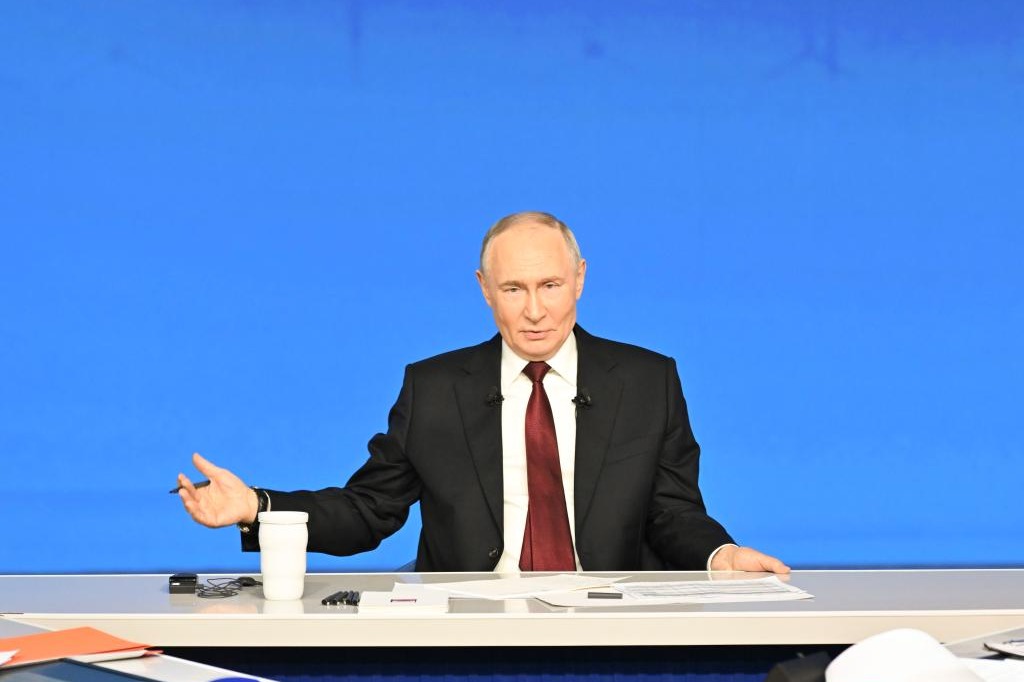Urgent need to upgrade US roads, bridges


But Trump, Congress disagree on who will pay for these projects and how
The need to upgrade US infrastructure is clear. What isn't is who will pay and how.
With the United States facing a projected budget deficit for fiscal year 2020 of $1.1 trillion, the $2 trillion price tag US President Donald Trump proposed when he met with Democratic congressional leaders last week to fix the nation's roads, bridges, tunnels and waterways is daunting.
Whether the discussions will lead to concrete deals is still questionable, since politics likely will take precedence once Congress takes up the issue.
A 2017 report by the American Society of Civil Engineers, or ASCE, graded the nation's infrastructure D+ and warned: "Deteriorating infrastructure is impeding our ability to compete in the thriving global economy."
Decrepit infrastructure costs each US household an average of $3,400 every year due to productivity losses, higher transportation costs and other problems, according to the ASCE. It estimates the cost of needed repairs at $4.6 trillion.
"The Highway Trust Fund will be insolvent by 2021," Lloyd Brown, spokesman for the American Association of State Highway and Transportation Officials in Washington, told China Daily. "We're going to need some sort of investment going forward. It's up to Congress to figure out how to fill the gap."
After meeting with Trump last week to discuss the outlines of a bill, House Speaker Nancy Pelosi, a Democrat from California, spoke of "jobs, jobs, jobs", "clean air" and "clean water" declaring infrastructure a "public health issue".
But White House acting chief of staff Mick Mulvaney said one chief area of disagreement between Republicans and Democrats is that the White House wants environmental deregulation included in an infrastructure package, which it says would speed up new projects. Democrats oppose the deregulation out of concern for the environment.
Those arguing for increased taxes to fix highways say that they benefit everyone and therefore the burden should be shared. But advocates for higher user fees say those who use roads, bridges and waterways should pay for them.
A tax hike appears to be moot. Senate Majority Leader Mitch McConnell, a Republican, says higher taxes are a "nonstarter" even though the federal gasoline tax, now 18.3 cents a gallon (3.79 liters), hasn't been raised since 1993.
But about 30 states have hiked gas taxes since 2013 to build and maintain highways. And this year alone that tax has been increased by Alabama, Arkansas, Ohio and Virginia, although Virginia's only applies to a portion of the state.
There are 4.2 million miles (about 6.8 million kilometers) of roads in the US, including 48,254 miles of high-speed, divided interstate highways. Nationwide, about 19.4 percent of the highways are in poor or mediocre condition and about 47,052 of the nation's 616,086 bridges are structurally deficient, according to the ASCE. Local governments maintain about 77 percent of the nation's highways, according to the Federal Highway Administration.
However, most infrastructure in the US is developed and maintained by the private sector - not federal, state or local governments. In 2015, the US Bureau of Economic Analysts estimated private nonresidential investment at $2.3 trillion, including freight railroads, pipelines, power stations, refineries, cell phone networks, internet cables, factories and distribution centers. Government infrastructure investment that year totaled $613 billion. The nation's rail system earned a B, the highest grade the ASCE gave any sector.
Three ways
The Brookings Institution, a liberal think tank in Washington, says there are three ways to pay for new infrastructure projects: Raise revenue, borrow or use gimmicks to mask costs.
Former US president Dwight D. Eisenhower's original proposal for the Interstate Highway bill adopted in 1956 called for funding the project with bonds, but Congress rejected the proposal because fees and interest payments reduce the amount available for construction. Instead, Congress raised the gasoline tax to three cents a gallon from two. Replacing federal money with private capital is the alternative to new or higher taxes - and unlikely.
"Possible in theory, difficult in practice," the Brookings Institution noted. "State and local governments already enjoy a large federal subsidy every time they borrow for infrastructure in the form of tax-free municipal debt. While the Trump tax cut reduced this subsidy, making infrastructure more expensive, it is hard to develop a new and larger subsidy to incentivize state and local governments to prefer private capital over tax-free municipal debt."
In the US public-private partnerships have successfully built toll roads in California, Virginia, parts of Texas and other states, but not all projects have succeeded. In Texas, the Australian company that built and operated a toll road between Austin, the capital, and San Antonio went bankrupt four years after it opened because traffic failed to generate sufficient revenue.
The Rand Corporation, a non-partisan research agency in Santa Monica, California, said infrastructure projects could be funded by levying a tax on crude oil and imported petroleum products to spread the burden. That would mean homeowners who heat with fuel oil would pay a federal tax for the first time.
"Replacing taxes at the gas pump with a percentage tax on oil, the tax burden would be spread across all users of petroleum products, not just motorists and truckers," Rand's analysts said. "The rate would change from 10 percent (for oil priced at) $120 a barrel, to 17 percent at $72 a barrel and 34 percent at $40 a barrel to generate the same amount of revenue."

































